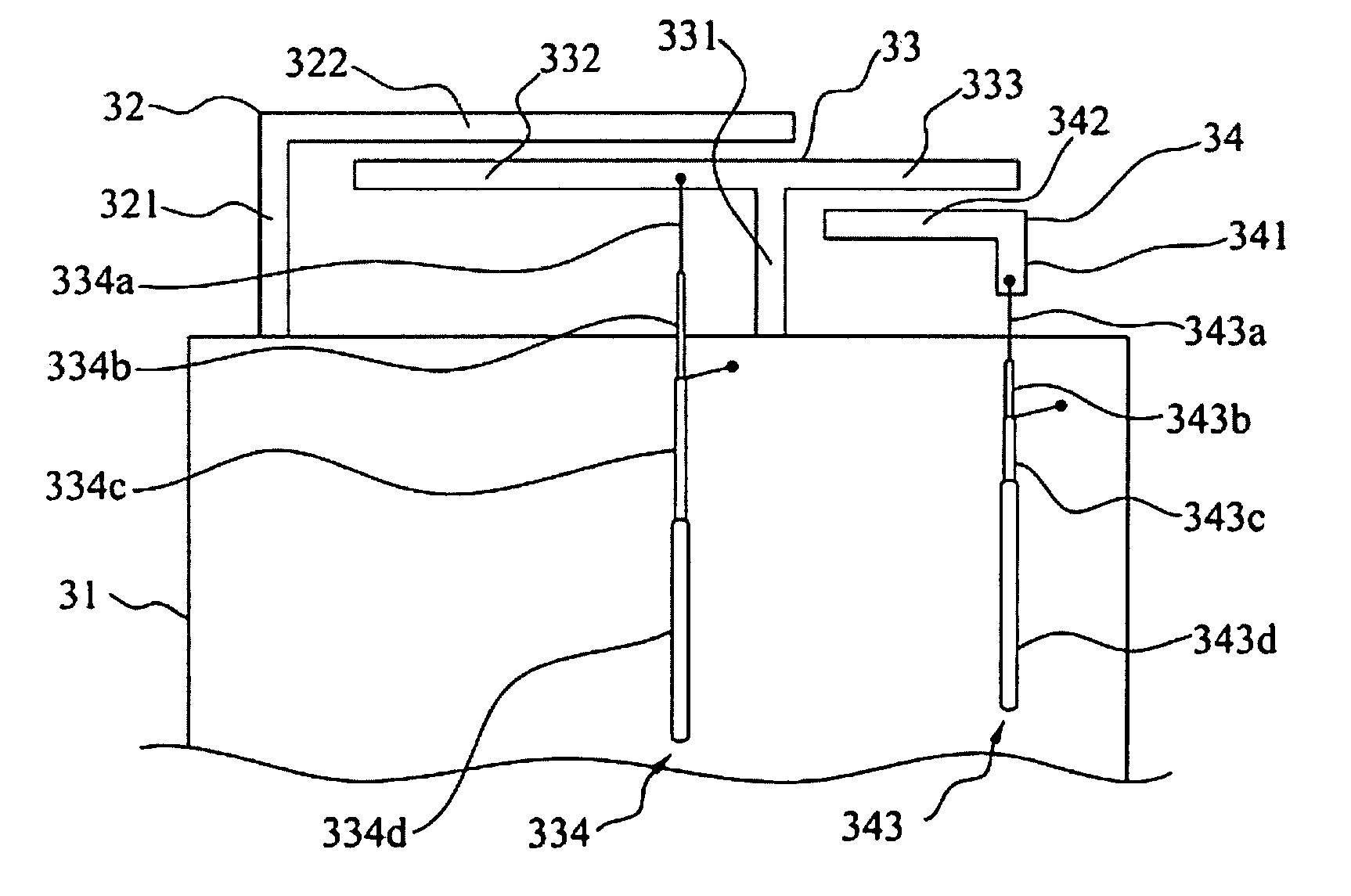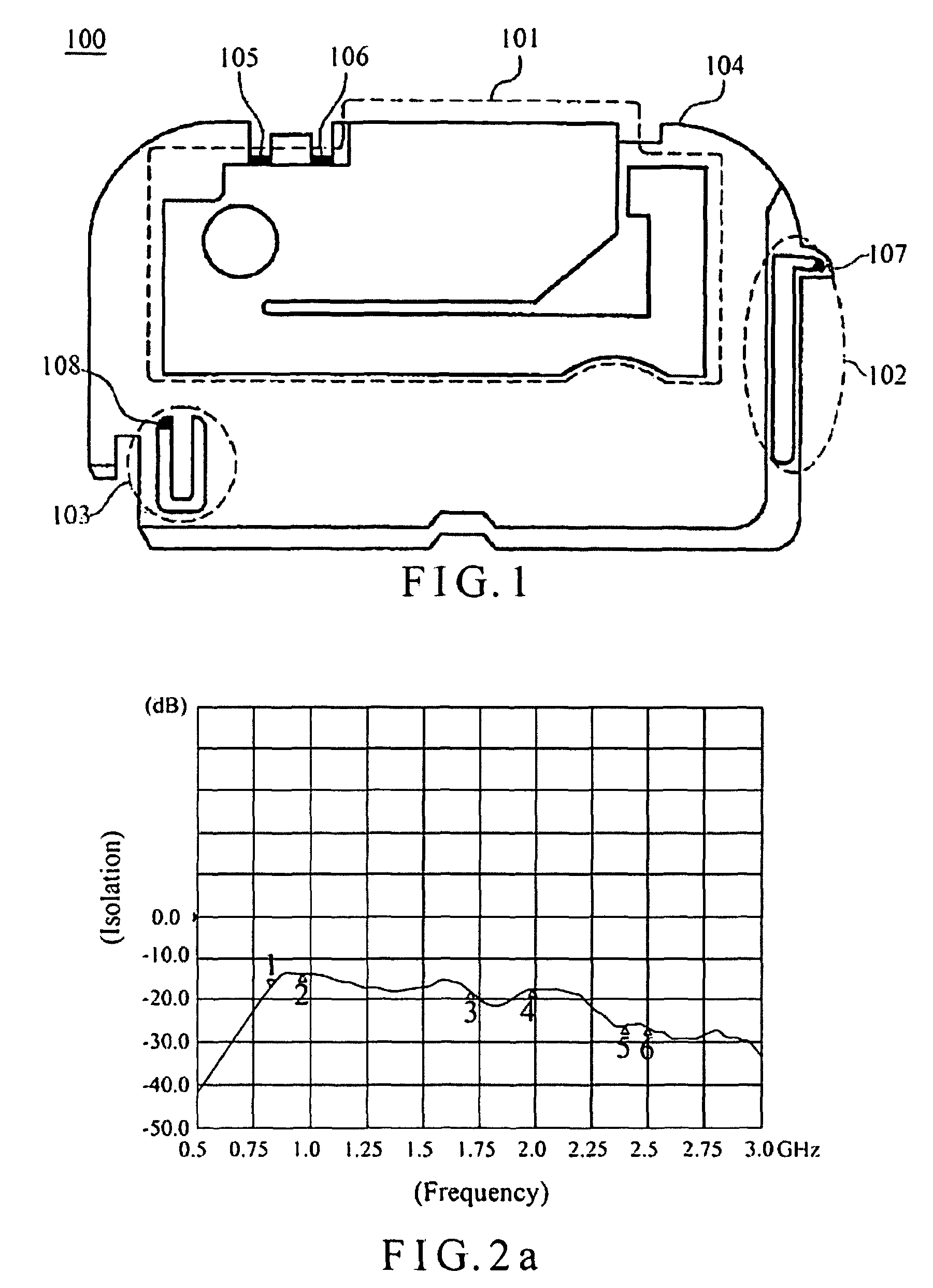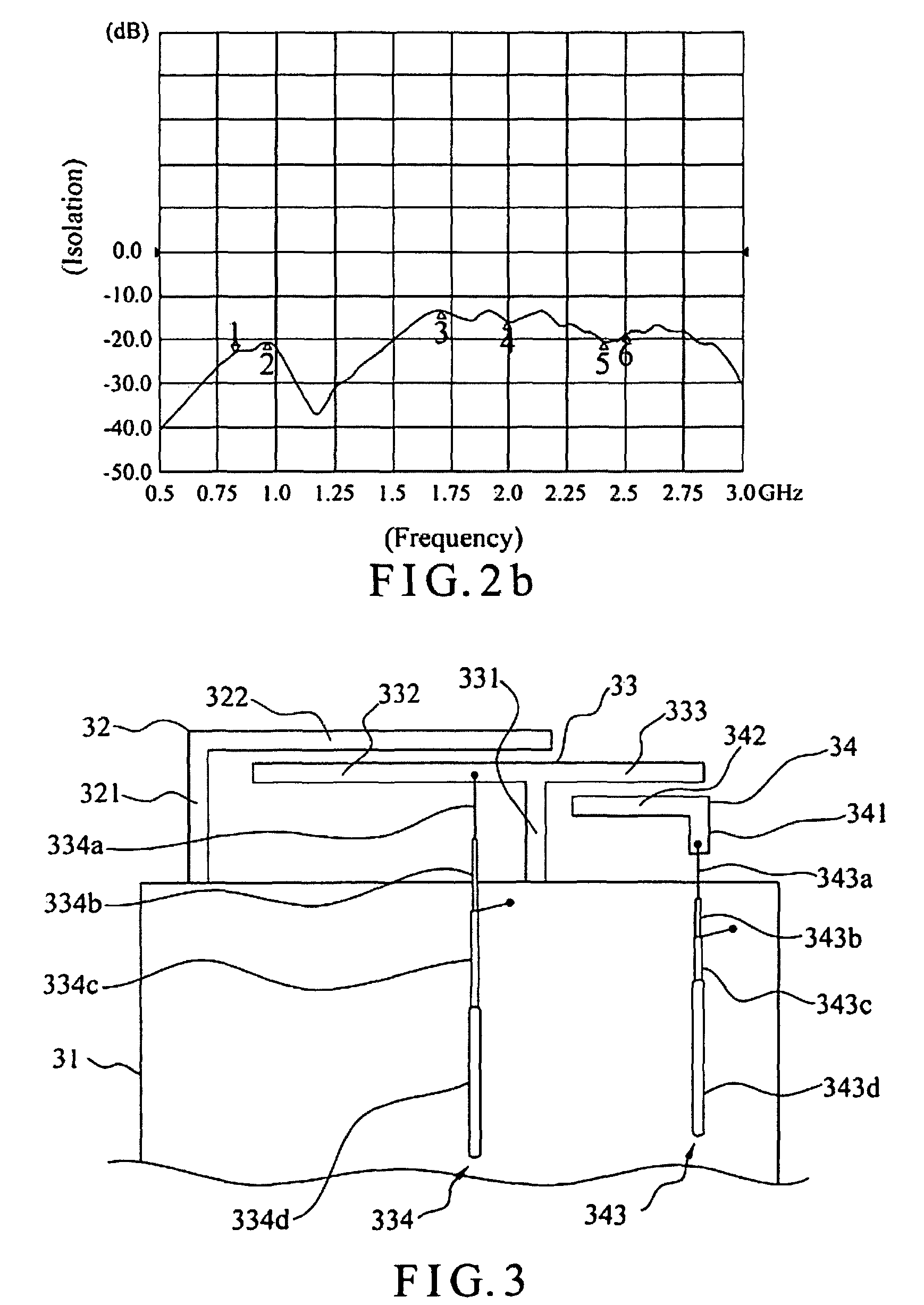Multi-antenna module
a technology of multi-antenna modules and antennas, applied in the field of multi-antenna modules, can solve the problems of increasing the difficulty of installing the antenna integration system, the radiation efficiency of the antenna integration system is difficult to increase, and the antenna system is difficult to integrate with electronic products, so as to reduce the layout space of the antenna, reduce the interference between the antenna and the effect of reducing the interferen
- Summary
- Abstract
- Description
- Claims
- Application Information
AI Technical Summary
Benefits of technology
Problems solved by technology
Method used
Image
Examples
first embodiment
Referring to FIG. 3 a top view of a multi-antenna module according to the present invention, the multi-antenna module of the present invention comprises a ground plane 31, a primary conductor 32, a secondary conductor 33 and a coupling conductor 34. The primary conductor 32 further comprises a first short-circuit member 321 and a primary radiation arm 322. The secondary conductor 33 further comprises a second short-circuit member 331, a secondary radiation arm 332, an extension arm 333 and a first feeder cable 334. The coupling conductor 34 further comprises a feeder member 341, a coupling arm 342 and a second feeder cable 343.
One end of the first short-circuit member 321 of the primary conductor 32 is connected to the ground plane 31. One end of the primary radiation arm 322 is connected to the other end of the first short-circuit member 321, and the primary radiation arm 322 extends from the first short-circuit member 321 along a first direction. One end of the second short-circui...
second embodiment
The second embodiment is different from the first embodiment in that the primary conductor 52 has an additional first extension arm 523. The first extension arm 523 is connected to the joint of the first short-circuit member 521 and the primary radiation arm 522 and extends from the first short-circuit member 521 along the second direction. The second embodiment further has a second coupling conductor 55 arranged beside the first extension arm 523. The second coupling arm 552 of the second coupling conductor 55 and the first extension arm 523 of the primary conductor 52 are parallel to each other and have a gap therebetween. The third feeder cable 553 is connected to the second feeder member 551.
The second feeder member 551 receives a feed-in signal from the third feeder cable 553 and transmits the signal to the second coupling arm 552. The second coupling arm 552 couples the signal to the first extension arm 523, and the first extension arm 523 transmits the signal to the first sho...
PUM
 Login to View More
Login to View More Abstract
Description
Claims
Application Information
 Login to View More
Login to View More - R&D
- Intellectual Property
- Life Sciences
- Materials
- Tech Scout
- Unparalleled Data Quality
- Higher Quality Content
- 60% Fewer Hallucinations
Browse by: Latest US Patents, China's latest patents, Technical Efficacy Thesaurus, Application Domain, Technology Topic, Popular Technical Reports.
© 2025 PatSnap. All rights reserved.Legal|Privacy policy|Modern Slavery Act Transparency Statement|Sitemap|About US| Contact US: help@patsnap.com



